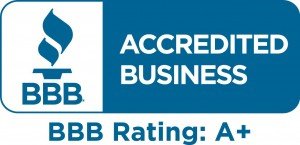
You research various destinations; informed decisions are reached; cost is negotiated; time is set aside; appropriate attire is purchased; dates are set and reservations are confirmed. If a decision is reached to drive to the destination, obviously directions are then obtained. If an individual drives from New York to Los Angeles with no directions, they may arrive but the trip would be filled with delays, mistakes, and the time involved during the journey would be dramatically increased.
The same holds true for a job search.
Simply put: If you don’t know where you’re going, you’re never going to get there! Too often, individuals wait for opportunities to present themselves rather than conduct an ongoing plan to advance their own careers. Often a job search is initiated by the loss of a job which was not anticipated by the individual. There are many horror stories of individuals being out of work for three months, six months or longer.
Submitting your application online is one of the easiest ways to get your resume out, but can be considered less effective to secure employment. Why? So often, resumes are not read or acknowledged due to the volume of responses. The goal of any job search is to get in front of decision makers. If you don’t date, you’ll never get married. If you don’t interview, you won’t secure a new job. Your goal is to book interviews; not focus only on the number of resumes you send out.
Finding a new opportunity is a full-time job! An individual who is not employed should spend 40 hours every week working on their job search. Someone currently employed should schedule at least 10 hours per week on his or her search.
Your Job Search: It’s all about planning.
(Take note of these planning tips that can help set you up for success)
– Be clear about what you want: An experienced professional typically knows what they want and has the right qualification for their next job. Define the type of job you’re looking for and then focus on the companies that you believe would be the best fit. Planning this stage will help you get through the next stages easier.
– Get Organized:
o Start a job search folder on your computer and label it something like, Job Search 2016.
o Create three other separate folders under this job search folder labeled: Resume and Cover letters, Reference Letters/Referrals and Thank-You Letters. You should have an updated version of your resume as well as a professional cover letter that you can edit when you apply for a job. These are your cornerstones of your job search. This information, for the most part, goes with you throughout the entire process.
o Job Research: Any research you conduct on companies should be kept in a folder marked Job Search. This includes contacts you have at companies, or research you’ve done on a particular company via the Internet, networking events or social platforms like LinkedIn. If you have this information online, be sure and keep a backed up version on a hard drive so that you don’t lose it.
o Job Applications: If you’ve applied to a job, keep a record as well in the folder labeled; Completed Job Applications. This includes the application, cover letter and any correspondence you received. This may sound tedious, but it’s the best to keep all your efforts organized that way immediately about the who, what, where and why of a company when they contact you.
– Create Your Target List Spreadsheet: Once you’ve identified several companies you’re interested in, create a spreadsheet that will allow you to track all your job applications. Think of this document like an overview of all your job search efforts. It should include a date, job posting, company contact, resume and cover letter version, status and interview date. Keep your own meticulous records of your job search. Don’t rely on multiple online job posting companies to keep track of your job applications.
Our planning tips are for those individuals who are serious about getting a job. Planning out your job search and maintaining an organized area with all your information will prevent important details and follow ups from slipping through the cracks.
ABOUT THE AUTHOR, Ingrid Moore
Ingrid Moore is the Founder and CEO of Corporate Resources of Illinois, an employment & staffing agency with over 20+years’ experience located in Schaumburg, IL. Ingrid and her team assist employers with finding the right hire for their business. For more info, follow us on our LinkedIn Company Page, or follow us Corporate Resources of Illinois‘s Google+ page.




